Digestive Disorders, Brampton
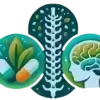
Digestive Disorders, Brampton Acupuncture Clinic
Acupuncture treatment has been shown to effectively alleviate symptoms of various gastrointestinal disorders. This therapy works by stimulating nerve endings in the digestive system, helping to regulate muscle function and enhance blood circulation. In a study involving patients with inflammatory bowel disease, acupuncture significantly improved symptoms after just six weeks of treatment.
At the “Brampton Naturopath Osteopath Clinic“, our experienced acupuncturists have successfully treated hundreds of patients with diverse digestive issues, helping them achieve lasting relief and improved digestive health.
Digestive disorders encompass a wide range of conditions that cause discomfort or pain in the stomach, intestines, and other parts of the digestive tract.
Brampton's Best Acupuncture Clinic
What are the Symptoms of Digestive Disorders?
Digestive disorders may be an uncomfortable topic, but they impact a significant portion of the population—nearly half of all people will experience a digestive issue at some point in their lives.
The most common symptom is stomach pain, often accompanied by diarrhea and/or constipation.

What are Health Benefits of Acupuncture for Digestive Disorders?
In recent years, acupuncture has gained widespread popularity as a natural and effective treatment for digestive disorders. It is among the most common applications of acupuncture, proven to relieve stomach and intestinal pain as well as discomfort. Beyond pain relief, acupuncture can enhance stool consistency and regularity while reducing symptoms like bloating and nausea. For those experiencing recurring digestive issues, acupuncture offers a holistic, long-term approach to support and maintain optimal digestive health.
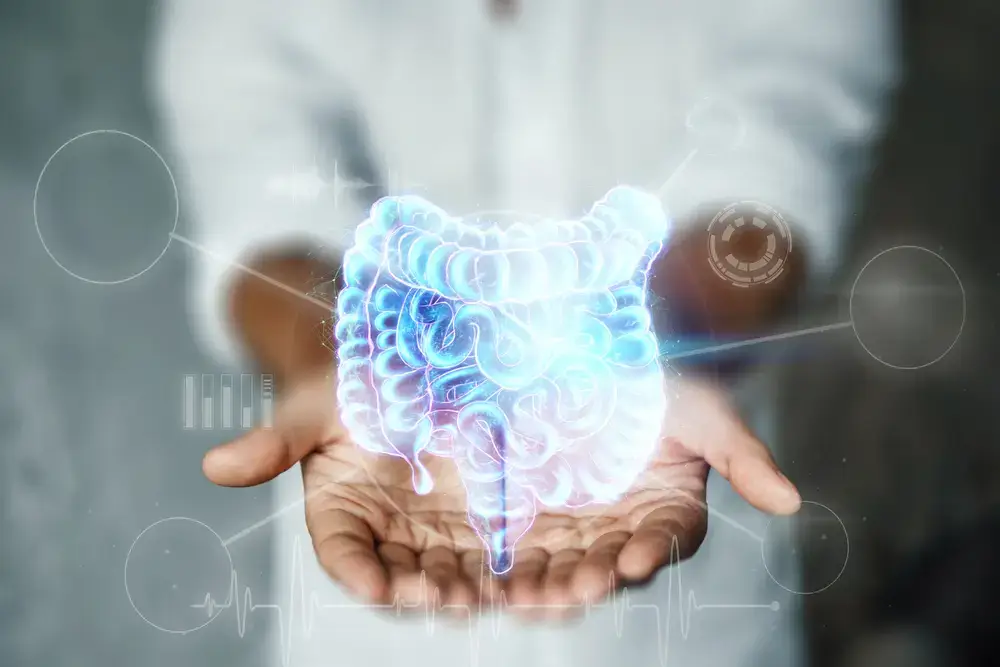
What are Digestive Disorders?
Digestive disorders encompass a wide range of conditions that affect the body’s ability to break down and absorb food properly. These issues can vary from mild discomfort to severe complications, often stemming from imbalances within the digestive system. Multiple factors can contribute to the development of digestive disorders, including medications, underlying illnesses, and lifestyle habits such as diet and stress levels.

What Causes Digestive Disorders?
Digestive disorders refer to a range of conditions that affect the body’s ability to properly break down and absorb food. These issues can vary from mild discomfort to severe health problems and are often linked to imbalances within the digestive system. Several factors can contribute to the development of digestive disorders, including medications, underlying medical conditions, and lifestyle choices such as diet and stress.
How does Acupuncture Work to Help Digestive Disorders?
Individuals struggling with digestive issues like irritable bowel syndrome (IBS) and stomach ulcers may find significant relief through acupuncture. This ancient therapy works by stimulating and balancing the body’s energy flow, helping to unblock stagnation and restore harmony. Acupuncture can be an excellent complement to conventional treatments for various digestive conditions.
Acupuncture has been shown to support a wide range of digestive disorders, including heartburn, constipation, and IBS. One way it achieves this is by stimulating the vagus nerve, which plays a key role in regulating digestion and stomach acid production. Additionally, the insertion of fine needles improves circulation around the stomach and intestines, easing tension and promoting healing. For conditions like functional dyspepsia, acupuncture can also trigger anti-inflammatory responses in the gut, further supporting digestive health.
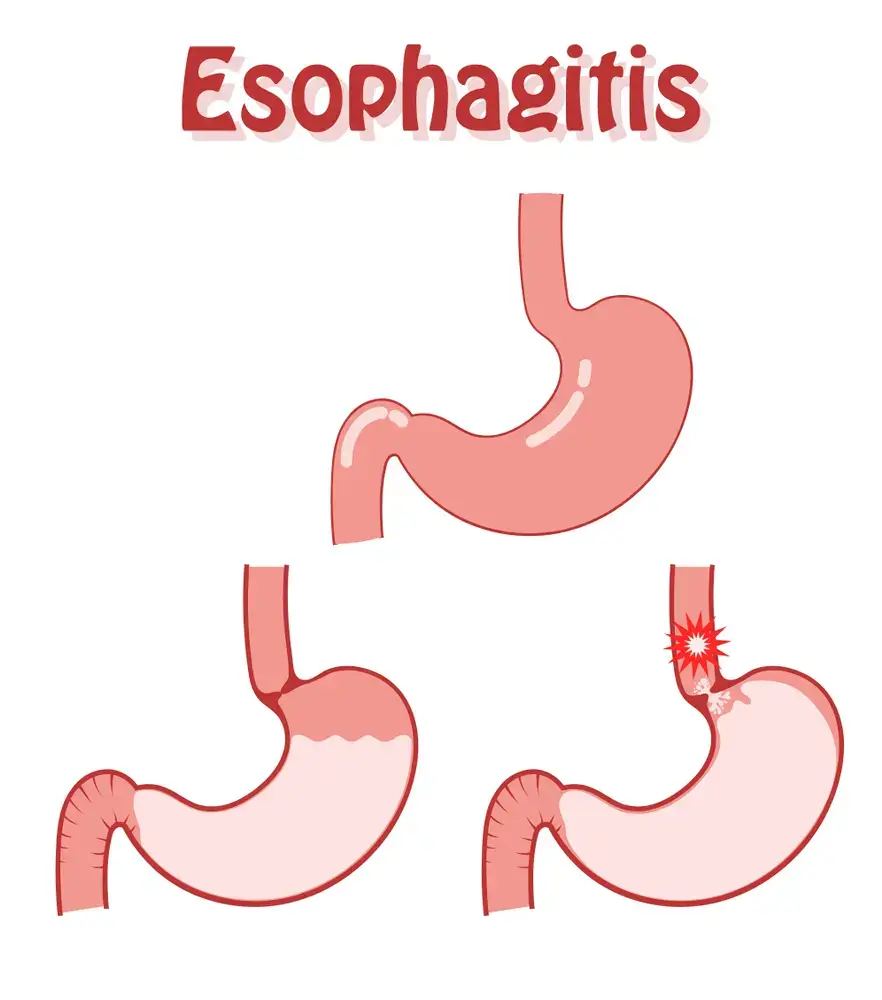
Esophagitis
Esophagitis is a digestive disorder characterized by inflammation of the esophageal lining. This inflammation often results in difficulty swallowing and, over time, can cause strictures—narrowed areas in the esophagus that further impede the passage of food. Esophagitis can arise from several causes, including autoimmune reactions, certain medications, or chronic infections. However, the most common culprit is acid reflux, where stomach acid that hasn't been adequately neutralized irritates and damages the esophageal tissue.
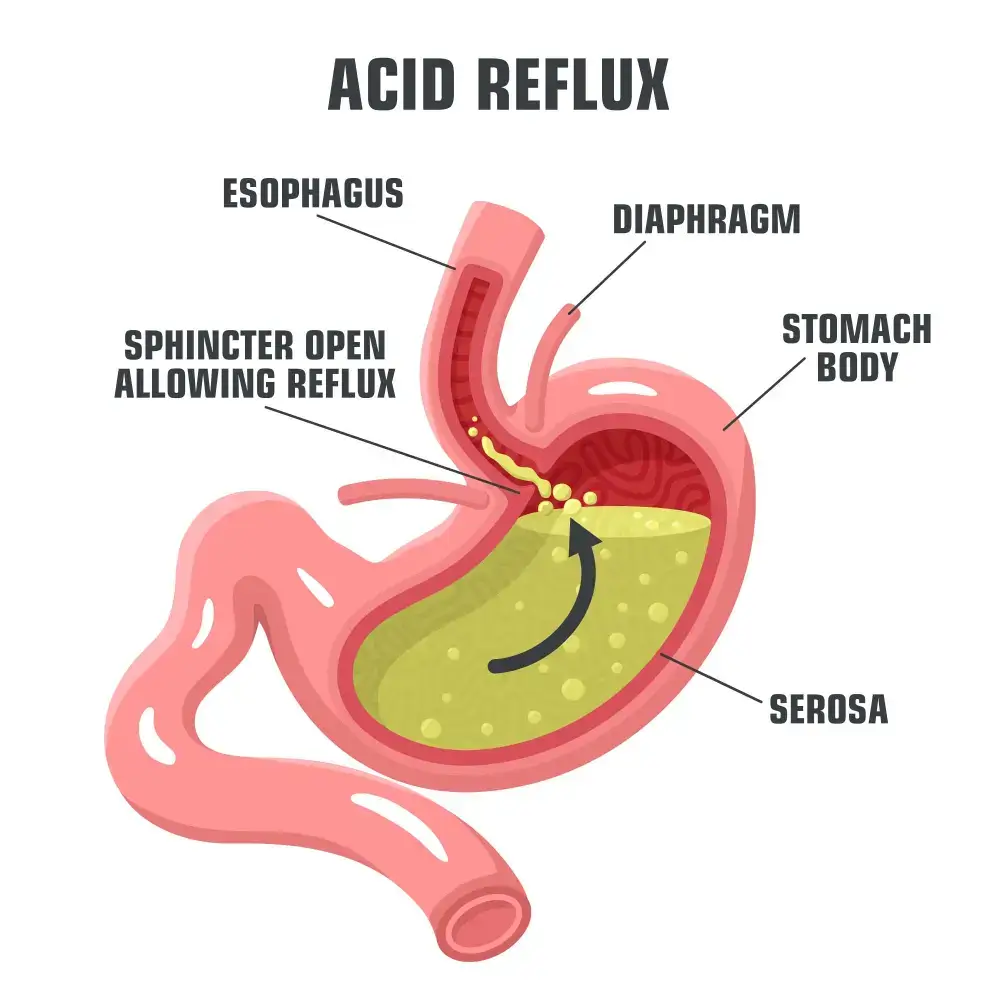
Acid Reflux
Acid reflux is a digestive disorder that occurs when the lower esophageal sphincter (LES) fails to close properly, allowing stomach acid to flow back up into the esophagus. This backflow causes the burning sensation commonly known as heartburn, along with other potential symptoms. While acid reflux can affect individuals of all ages, it is particularly prevalent among adults who are overweight or have underlying medical conditions such as gastroesophageal reflux disease (GERD), diabetes, or a hiatal hernia.
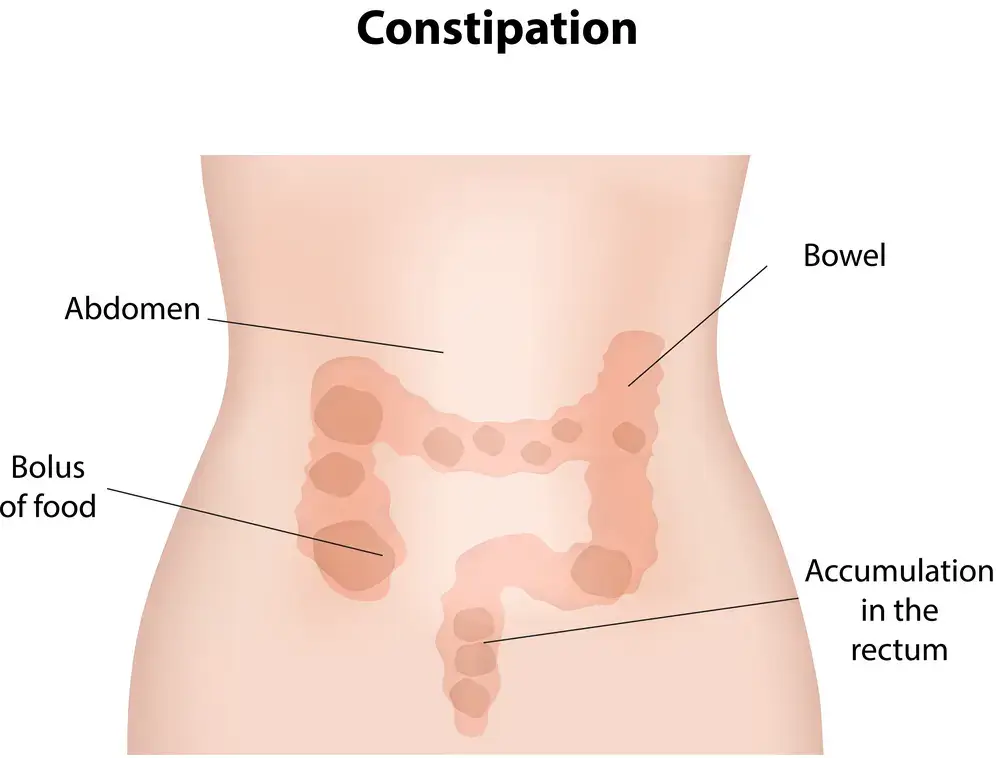
Constipation
Constipation is a common digestive disorder characterized by difficulty in passing stool. Its severity can vary widely, from infrequent bowel movements to complete absence of bowel movements for several days or even weeks. In more severe cases, constipation can lead to fecal impaction, a condition where the stool becomes so hard and dry that it becomes impossible to pass without medical intervention.

Gastritis
Gastritis is a digestive disorder characterized by inflammation of the stomach lining. It can result from various causes such as infections, radiation, ulcers, alcohol consumption, smoking, and Helicobacter pylori (H. pylori) bacteria, among others. This condition typically causes discomfort or pain in the upper abdomen, often accompanied by nausea. Additional symptoms may include heartburn, indigestion, bloating after meals, difficulty swallowing, frequent burping, or persistent vomiting that isn’t relieved by belching.

Bloating
Bloating is a common gastrointestinal issue that leads to discomfort and abdominal pain. While often mistaken as a result of overeating, bloating can stem from various causes beyond just food intake. When excess air accumulates in the stomach rather than food, it causes the stomach to expand and exert pressure on surrounding organs. This distension frequently brings on symptoms like abdominal cramps, nausea, and diarrhea. Although uncomfortable, bloating is typically not serious or life-threatening.

Diarrhea
Diarrhea is a digestive disorder characterized by frequent, loose, and watery bowel movements. It can also impair the absorption of essential water-soluble vitamins in the gut. Common causes of diarrhea include infections from viruses, bacteria, fungi, parasites, or exposure to toxins. Infants are particularly vulnerable to dehydration during episodes of diarrhea, as their intestines allow increased fluid loss, making timely care crucial.
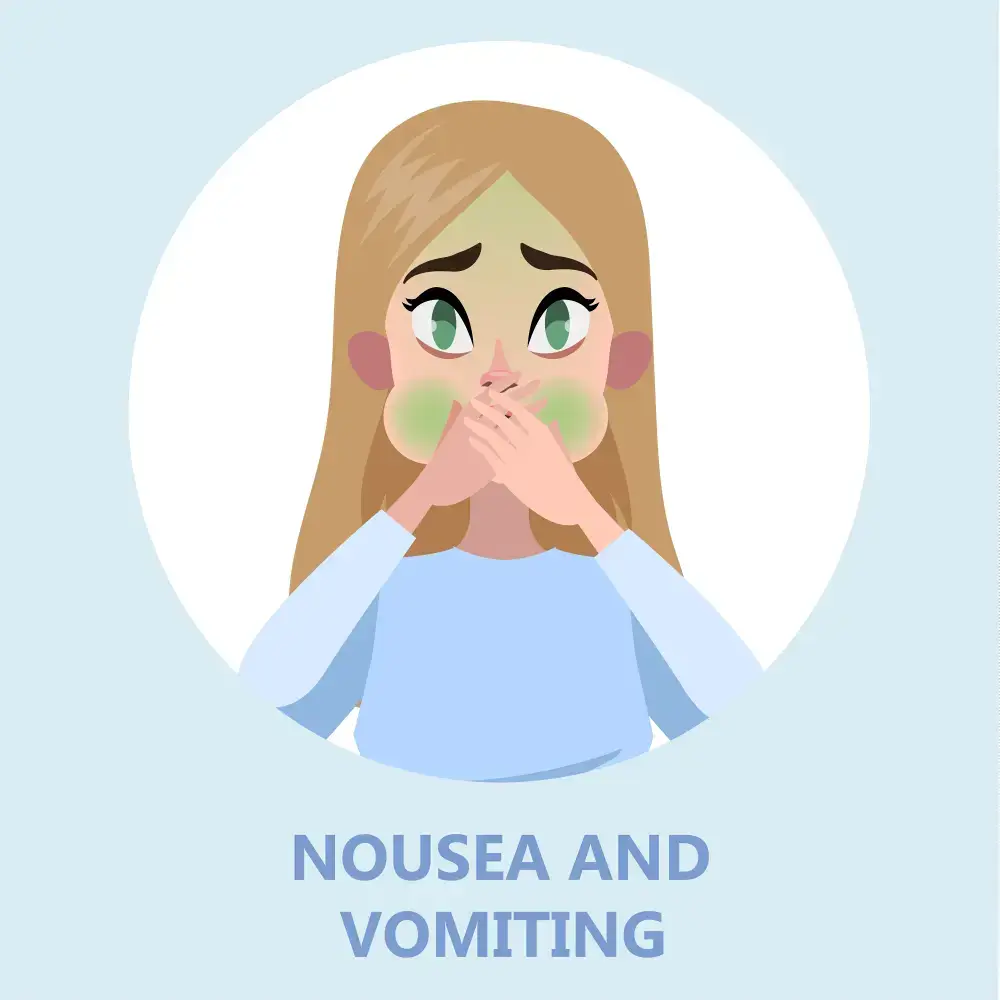
Nausea
Nausea is a common sensation characterized by the uneasy urge to vomit. It can arise from a variety of causes, including illness, pregnancy, food poisoning, or emotional stress. Typically, nausea may lead to dry heaving and feelings of dizziness, but it usually does not cause intense pain. Additional symptoms often include loss of appetite, mood changes, and difficulty focusing.
Brampton Naturopath Osteopath Clinic: Acupuncture Services
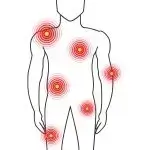
Musculoskeletal Pain
Musculoskeletal pain can range from mild to severe pain. There are many benefits of acupuncture including decreased pain, reduced inflammation, and improved function.

Obstetrics, Gynecological Conditions
Acupuncture, a traditional Chinese medicine technique, has been used in obstetrics and gynecology to relieve pain and other symptoms such as labor pain, menopause, menstrual cramps, and infertility. It also helps with insomnia and other painful conditions like trigeminal neuralgia.

Cardiovascular Disorder
Cardiovascular disorders affect the heart and the circulation of blood. They can be classified as either congenital or acquired and can also include cardiomyopathies.
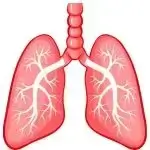
Respiratory Conditions
Acupuncture works to complement Western Medicine and can be a successful treatment for respiratory conditions. Acupuncture for respiratory conditions have been found to improve the quality of life for patients with asthma and COPD.
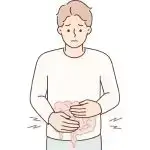
Digestive Disorders
Digestive disorders include many different conditions that can cause pain or discomfort in the stomach, intestines and other parts of the digestive tract. Acupuncture has been found to provide relief for gastrointestinal disorders.

Psychological Conditions
Psychological conditions can be used both to prevent or stop anxiety, depression, PTSD, addiction, and other emotional problems. It has shown to be effective in treating both physical and psychological conditions.

Neurological Conditions
Acupuncture has been shown to be effective in conditions ranging from minor pain to deadly cancer and neurological disorders. Scientific research has shown that electroacupuncture promotes the release of neurotransmitters in the brain which can help ease symptoms associated with anxiety and depression.

Pregnancy Care
Acupuncture services for pregnancy can be a great way to provide relief and support during the journey. Acupuncture helps to regulate hormones and can help with issues such as morning sickness, back pain, fatigue, and more.
If you liked this content and found it to be informative, please rate it.

